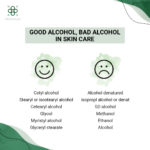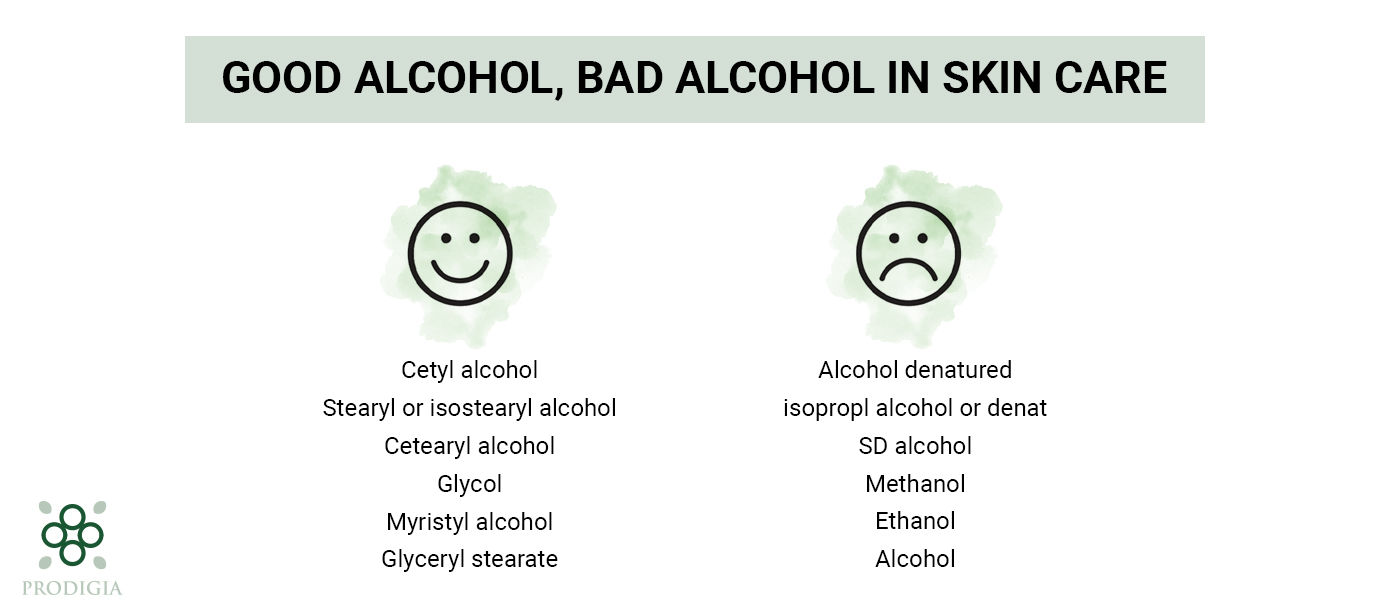When it comes to natural cosmetics, many people think that all alcohols are bad for the skin. However, this is not entirely true. While some alcohols can dry out and irritate the skin, others can be beneficial. What are the different types of alcohols that exist in natural cosmetics? Find all the answers to your question in this article:
It is important to understand that not all alcohols are created equal. There are two main types of alcohols commonly used in cosmetics: fatty alcohols and simple alcohols.
Fatty alcohols:
Fatty alcohols, such as cetearyl alcohol and stearyl alcohol, are derived from natural sources such as coconut. These alcohols are often used as emollients and thickeners in natural cosmetics. They help to moisturize the skin and improve the texture of products such as lotions and creams. Fatty alcohols are considered safe and non-irritating, even for people with sensitive skin.
Here are examples of “good” alcohols or fatty alcohols : “Cetyl alcohol”, “Stearyl or isostearyl alcohol”, “Cetearyl alcohol”, “Brassica alcohol ”, “Myristyl alcohol”, and “Glyceryl stearate”.
Simple alcohols:
Simple alcohols, on the other hand, can dry out and irritate the skin. These alcohols, such as denatured alcohol and isopropyl alcohol, are commonly used in mainstream cosmetics and can strip the skin of its natural oils. They are generally not recommended for use in natural cosmetics.
Here are examples of simple alcohols: “Alcohol denatured”, “Isopropl alcohol or denat”, “SD alcohol”, “Ethanol”, and “Alcohol”.
When formulating your natural cosmetics, it is important to prioritize fatty alcohols over simple alcohols. This way, the formulated product will be gentle and non-irritating to the skin.
At Prodigia, we only use premium quality fatty alcohols.
Here is a chart including examples of both families of alcohols:

Need advice? Contact Prodigia!



